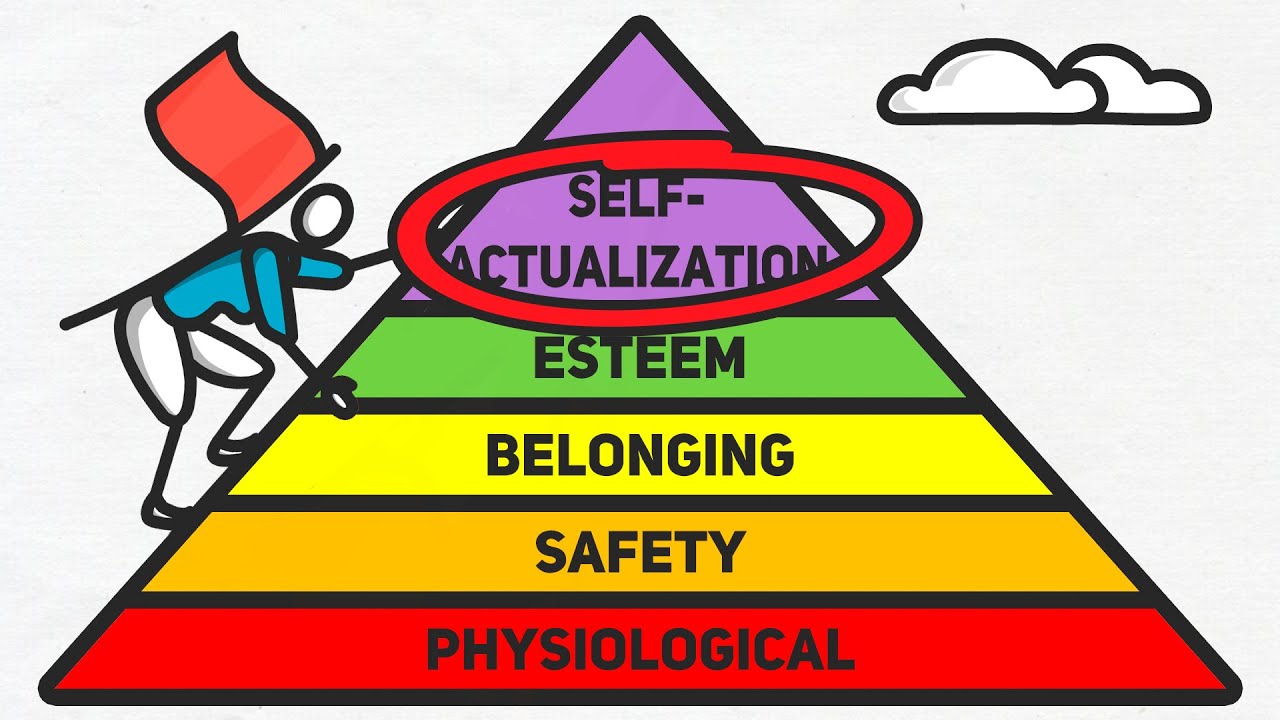Challenges and obstacles on the path to self actualisation
The journey to self-actualisation, as proposed by Maslow’s Hierarchy of Needs, is a noble pursuit, but it is by no means without its challenges and obstacles. Achieving self-actualisation requires a deep understanding of oneself, commitment, and resilience. Let’s explore some of the common challenges and obstacles individuals may encounter on this transformative journey:
1. Unsatisfied Lower-Level Needs:
One of the most significant challenges to self-actualisation is the prerequisite of fulfilling lower-level needs. Many people around the world struggle to meet their basic physiological and safety needs, let alone ascend the hierarchy. Without access to food, shelter, and a stable environment, the pursuit of self-actualisation can seem like a distant dream. This underscores the importance of addressing these foundational needs in order to progress.
- Seek Assistance: If struggling with basic needs, reach out to social services, community organisations or support networks for help.
- Focus on incremental progress: Take small steps fulfilling lower-level needs while simultaneously working on self-actualisation.
2. External Expectations and Social Pressure:
Society often places expectations on individuals, pressuring them to conform to predetermined norms and values. This external pressure can hinder self-actualisation by diverting one’s focus away from authentic self-discovery and personal growth. The fear of judgment and criticism from others can be a powerful deterrent to the pursuit of one’s true passions and aspirations.
- Establish personal boundaries: Define your values and priorities and communicate them to others helping to protect your authentic self.
- Surround yourself with supportive indidviduals: Seek out like-minded people who encourage your self actualisation journey.
3. Fear of Failure and Risk Aversion:
Self-actualisation often involves taking risks and stepping into the unknown. It requires the courage to explore new paths, embrace creativity, and potentially fail along the way. The fear of failure can be paralyzing, preventing individuals from fully committing to self-actualisation and personal growth.
- Embrace a growth mindset: View failure as a stepping stone to success and an opportunity to learn.
- Set small, achievable goals: Break your journey into manageable steps to reduce the fear associated with major risks.
4. Lack of Self-Understanding:
Self-actualisation requires a deep understanding of oneself, which can be a lifelong endeavor. Some people struggle with self-awareness, making it challenging to identify their true values, passions, and desires. Without this self-awareness, the journey towards self-actualisation can feel directionless.
- Practice self-reflection and meditation: Journaling, mindfulness, meditation, and therapy can aid in developing self-awareness.
- Seek feedback: Ask trusted friends or professionals for insights into your strengths and weaknesses.
5. Overcoming Limiting Beliefs:
Self-actualisation often involves challenging and overcoming limiting beliefs, both about oneself and the world. These beliefs may be deeply ingrained, making it difficult to break free from self-imposed constraints. This process of self-discovery can be emotionally taxing and requires immense introspection and personal development.
- Cognitive restructuring: Challenge and replace limiting beliefs with more empowering thoughts.
- Professional help: Consider therapy or coaching to address deep-seated beliefs that hinder self-actualisation.
6. Balancing Self-Actualisation with Practical Realities:
The pursuit of self-actualization can sometimes clash with practical realities, such as career, finances, and family responsibilities. Balancing the desire for self-fulfillment with these responsibilities can be a complex and ongoing challenge. People may find themselves caught in a dilemma, struggling to integrate self-actualisation into their daily lives.
- Created a balanced plan: Develop a strategic plan that integrates self-actualisation with your practical responsibilities.
- Time management: prioritise tasks efficiently and allocate dedicated time to self-actualisation pursuits.
7. Impatience and Instant Gratification:
In a world characterized by instant gratification, the path to self-actualisation can appear slow and arduous. Many individuals may become impatient, seeking quick fixes and immediate results, which can impede the depth of personal growth required for self-actualisation.
- Set realistic expectations: Understand that self-actualisation is a long-term journey and be patient with your progress.
- Celebrate small wins: Acknowledge and celebrate achievements along the way to maintain motivation.
8. Isolation and Loneliness:
As self-actualisation often involves deviating from the norm and embracing individuality, it can lead to feelings of isolation and loneliness. Finding like-minded individuals or a supportive community can be challenging, and this sense of isolation can hinder progress.
- Join relevant communities: Seek out groups, forums, or organisations aligned with your interests and values.
- Foster social connections: Invest in meaningful relationships with people who support your journey.
9. Maintaining Momentum:
Maintaining the momentum of self-actualisation can be as challenging as initiating it. It requires sustained effort, continuous learning, and adapting to new circumstances. Many individuals struggle to remain committed over time, facing periods of stagnation or regression.
- Continous learning: Consistently seek new knowledge and experiences to keep your journey fresh and engaging.
- Set periodic goals: Establish milestones to track progress and maintain a sense of purpose.
In conclusion, the path to self-actualisation is a deeply personal and often challenging journey. Overcoming these obstacles requires resilience, introspection, and a commitment to personal growth. It’s important to recognize that the journey is ongoing, and setbacks and challenges are a natural part of the process. By addressing these challenges and staying true to the principles of self-actualisation, individuals can move closer to realizing their full potential and living a life of purpose and fulfillment. Furthermore, as self actualisation is a dynamic and evolving process – it’s essential to be adaptable and open to reevaluating your goals and strategies as you progress. Continually revisiting your tactics and seeking support when necessary will help you overcome these challenges on your path.
Did you know there is actually a final peak beyond self-actualisation in Maslow’s Hierarchy of Needs? Click the link below to find out.


Recent Comments